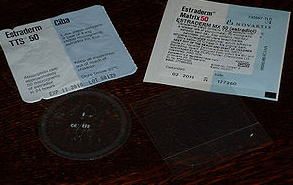
Hormone replacement therapy side effects are commonly associated with: preparations taken orally; the use of progestins rather than progesterone; and the physiologic action of the hormone on the target tissue.
Oral Hormone Replacement Therapy Side Effects
Hormone replacement therapy side effects that are linked to the oral route of taking the preparation include vomiting, nausea, headache, and loss appetite. These unwanted effects may be caused by either of two reasons: (1) the hormone replacement is directly affecting the lining of the stomach and; (2) the quick increase of the hormone levels in the brain.
The second case could be similar to morning sickness. If after a couple of weeks the symptoms still persist, it is recommended to lower the dose or switch to another oral preparation. If still, the adverse effects do not resolve, then shifting to a non-oral route of administration may be suitable.
Explaining The Occurrence of Oral Hormone Replacement Therapy Side Effects
When you orally take a hormone, your gastrointestinal tract absorbs it and is sent “en masse” or as a “bolus” to the liver. The process is known as “first-pass effect.” While in transit, the absorbed hormone changes the natural production of liver proteins. Majority of women may not be affected by the changes in the blood levels of such substances. However, a good number of women face the risk of raised blood pressure and rise in the frequency of migraine headaches due to this alteration.
Other Hormone Replacement Therapy Side Effects
One unwanted effect that occurs both in women taking HRT orally and through another route is breast tenderness. Women who are hormonally deficient may naturally experience breast tenderness that begins some weeks following the start of estrogen therapy. Deficiency in estrogen can lead to an involution of breast tissue, and by undergoing estrogen therapy, the breast tissue is stimulated by the hormone making the tissue sore and tender for two to three months while the tissue regenerates.
Hormone replacement therapy side effects may also include allergic reactions for women allergic to peanuts since preparations, such as Prometrium, have peanut oil. Allergies may also surface among women allergic to the adhesive used in transdermal estradiol patches. There may also be women who cannot tolerate the medium in the patch reservoir that carries the medication. If you suffer from these, you can opt to try other brands of transdermal patches.
Uterine bleeding is a common reason why some women do not like to start on or drop out of HRT. It’s the result from either too much estrogen or too little progesterone. Or it can result from cyclical use of progesterone for 10 to 12 days by women who have intact uterus and taking estrogen.
If you wish to avoid this unwanted effect, you can shift to HRT preparation that consists of estrogen and progesterone that is taken daily to prevent uterine bleeding. Such hormone replacement therapy side effects are tolerable for most women but there are those who suffer cramping, bleeding or spotting. persistent uterine bleeding requires gynecological work-up.
Besides the hormone replacement therapy side effects mentioned, women have been turned off by the studies showing HRT to increase certain health risks, including stroke, heart attack, breast cancer and blood clots related to the use of synthetic hormones as opposed to bio-identical. These will be discussed separately in one of our next posts.
See related articles.
